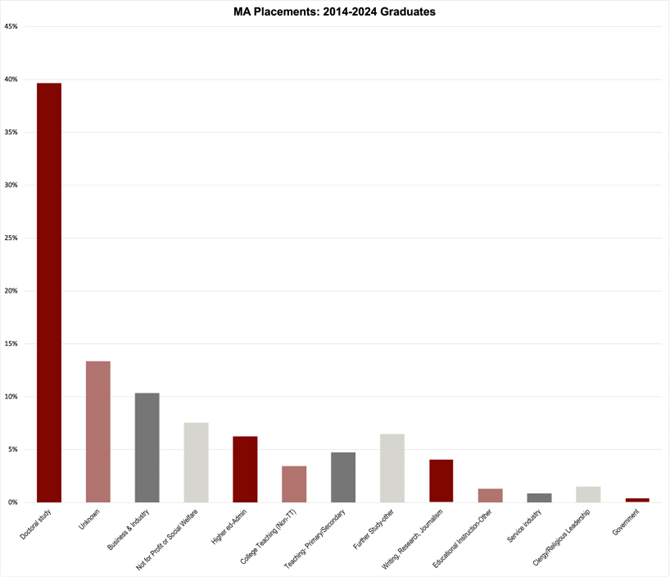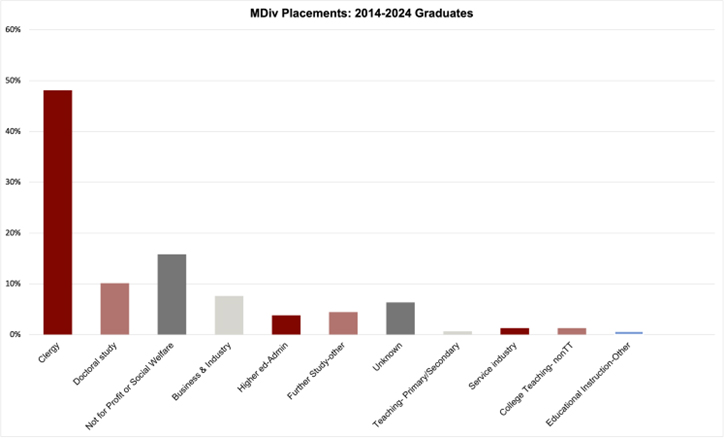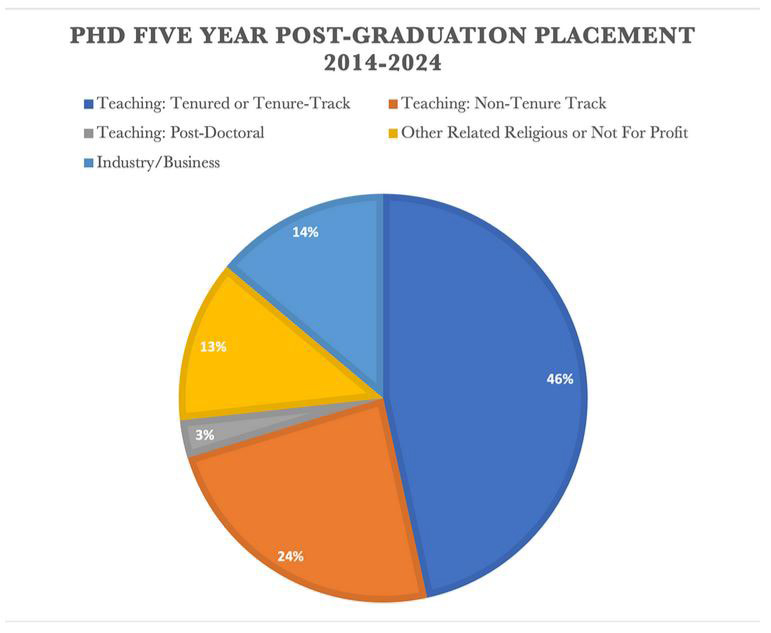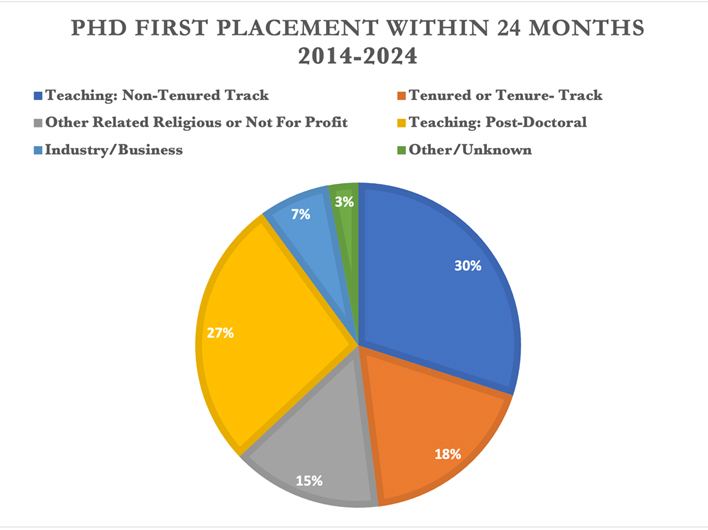Accreditation
The University of Chicago is accredited by the Higher Learning Commission of the North Central Association of Colleges and Schools. The Divinity School is accredited by the Commission on Accrediting of the Association of Theological Schools in the United States and Canada, and the following degree programs are approved: AMRS, MDiv, MA, PhD. Below you will find a summary of the placement outcomes for the MA, MDiv and PhD programs; this data is current as of January 2025.
Statement of Educational Effectiveness
The University of Chicago Divinity School generates new knowledge about the history, theology, beliefs, practices, and impact of world religions through a broad array of scholarly approaches that are deeply informed, intellectually curious, and honestly engaged. The Divinity School prepares students for careers in scholarship, teaching, and public religious leadership in various forms. Our community of scholars and professionals guide the public’s understanding of religion.
Our Programs
The Master of Arts in Religious Studies (AMRS)
The Master of Arts in Religious Studies is a one-year program designed for those looking to develop a broad basis of understanding in the academic study of religion and those professionals looking to connect their current field of practice to the study of religion.
The Master of Arts (MA)
The MA is a two-year program that enables students to explore the history, theology, beliefs, and languages of world religions though a variety of scholarly approaches. It is designed for students who wish to acquire the skills to develop a research agenda for doctoral study, or who want a broad and deep grounding in the academic study of religion in preparation for a wide range of professions.
The Master of Arts in Divinity (MDiv)
The MDiv is a three-year, cohort-based program designed for students from all religious backgrounds who are interested in careers in public religious leadership, whether in traditional ministerial professions or in new and emerging forms of leadership.
The Doctor of Philosophy (PhD)
The PhD is a rigorous course of advanced study and research that prepares students for a lifetime of field-defining scholarship, intellectual leadership, and teaching. Students concentrate work in a specific area of study to achieve a high level of expertise.





